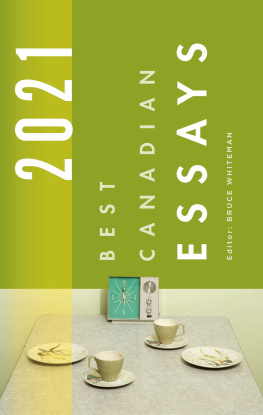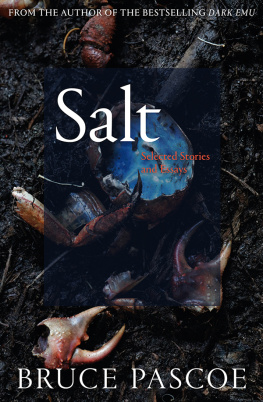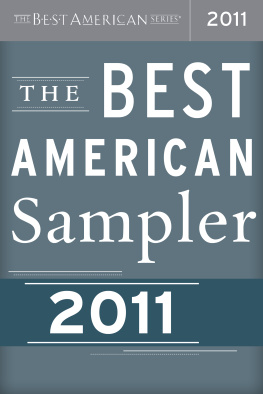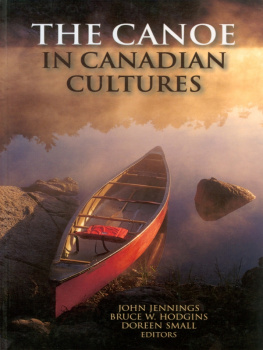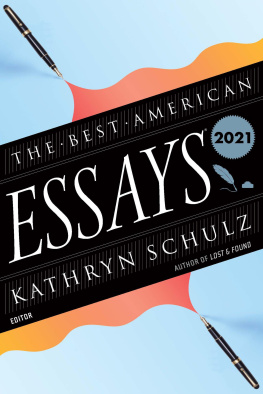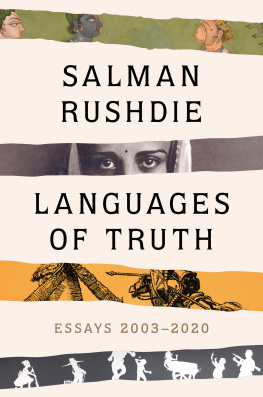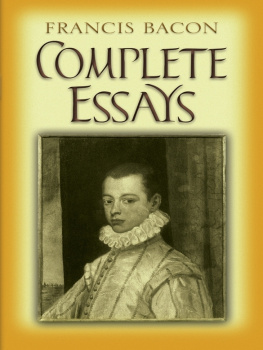Introduction
Bruce Whiteman
At the beginning of the introduction he wrote for his collection of poems The Wedge, published in 1944, William Carlos Williams said: The war is the first and only thing in the world today. As I write these words in the late spring of 2021, there are wars in many parts of the world continuing todayin Syria, Afghanistan, Yemen, and Ethiopia, among othersbut it is the pandemic that is really the first and only thing on the minds of people everywhere. It blighted much of the world during most of 2020, the year covered by this anthology; and while the virus has begun to fade in some countries, in others it is still going from bad to worse and threatens to dominate life for another year, perhaps even a good deal longer. Best Canadian Essays 2021 begins and ends with pieces about the pandemic as an acknowledgement of its dominance in global news and culture alike. The essays of Kevin Patterson and Hilary Leathem are rooted as much in personal experience as they are in scientific or medical research, rendering them ideal bookends for this collection.
But even in the midst of the worst worldwide medical crisis in a century, and what Sarmishta Subramanian, in the introduction to last years Best Canadian Essays, called a global syncope, Canadian writers have continued to write essays on a vast variety of subjects. After all, stay-at-home orders and province-wide lockdowns just feel to most writers like their usual writing life: stuck inside, seated at a desk in front of a computer. It may be somewhat encouraging to remember that the writer usually identified as the first modern essayist, Michel de Montaigne (15331592), lived through an outbreak of bubonic plague (albeit a bacterial, not a viral, infection) that killed half the population of Bordeaux, of which he was the mayor at the time. The authorities then were just as hesitant about lockdowns as any Canadian provincial premier; and although there were no vaccines then, visitors did have to show a card demonstrating good health in order to be allowed through the citys cordon sanitaire. Montaigne also managed to survive a different kind of outbreak, i.e., the Wars of Religion that dominated France during the last third of the sixteenth century. Essayists, then, like writers generally, have often faced demanding and dangerous circumstances during their writing lives; yet whatever the peril, it represents just one subject among many that they feel compelled to address.
Variety of interests and depth of curiosity have been the characteristic strengths of essayists from the very beginning. Plutarch, whom Montaigne called the most judicious writer in the world, and who was to Montaigne what Montaigne was to later essay writers, the master of a style and the possessor of an intelligence only to be aspired to, never achieved, wrote on the usual subjects dear to the later ancient philosophermorality, superstition, Plato (he was in favour of him), Stoicism (he was against it), Epicureanism (he was against that too)but also about vegetarianism, rhetoric, grief, and many other things, not to mention the famous parallel lives of the Greeks and Romans, which are not really essays so much as potted biographies. What makes Plutarch the patron saint of all subsequent essayists is that his writing is eternally interesting not so much for what it addresses as for the composite portrait it draws of the author. (Guy Davenport once remarked that Plutarch was probably the most civilized man who ever lived.) The same may be said of Montaigne, who was famously more self-conscious about his intentions (Thus, reader, I am myself the matter of my book). He called that book Essais, from the French verb essayerto attempt, to tryand the word first comes into English in its current meaning as the title of Bacons Essayes in 1597. Montaigne thus characterized a thousand pages of prose on subjects ranging from smells (he thought that his moustache helped to make his sense of smell more acute) to cowardice (he noted that cruel people wept easily) as a kind of first draft of the known worldspitballing, we might sayall seen through the eyes of a very particular person, with no desire to theorize and a curiosity that knew no bounds.
The essay, then, unlike the academic article or the scientific research paper, has usually gloried in its personal element. We remember and value an essayist like Leigh Hunt or William Hazlitt or Ralph Waldo Emerson for many reasons: for their style, their humour, their insights, their companionability. But even when the subjects they address have lost relevance or their passions seem outdated, even embarrassing, we continue to read them because of the personal frame. Glenn Goulds writings, most of which are perhaps too brief to represent full-fledged essays, many of them comprising only record liner notes or book reviews, nevertheless have a perdurable quality in part because of Goulds irrepressible personality. We know his various odd opinions wellHaydn is greater than Mozart, Richard Strauss is the greatest composer of the twentieth century, the live concert is dead and has had its obsequies read, etc.and yet the work is always larger than its content. That arrow of personal experience in the essayists quiver has grown increasingly characteristic in recent years, with the growing book-market dominance of personal memoirs. Memoirs of any kind were rare in Canadian literature before the 1960s, and until recently they tended to represent a kind of capstone to a successful life in politics or the arts. Often they were written as retirement projects. These days, the personal account of life in the family or of life governed by various kinds of trauma or of life as part of an underrepresented community is a genre unto itself, and its popularity with readers is reflected also in the essay form. We are captured by such books or essays through their authenticity, their narratives of coming to terms with the hard things that life can throw at humans, or simply their accounts of how people live their lives in a historical or cultural context. Elizabeth Dauphinees essay in this anthology is far more than a piece about house ownership. It is about seeing ones personal circumstances as part of a much longer and larger historical continuum. Joyce Waynes essay also comprises a personal storyshe was a red diaper babybut it is set within an under-discussed aspect of Canadian social and political history, the Communist Party of Canada.

